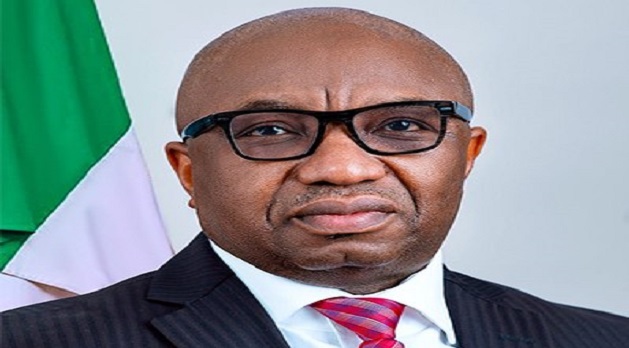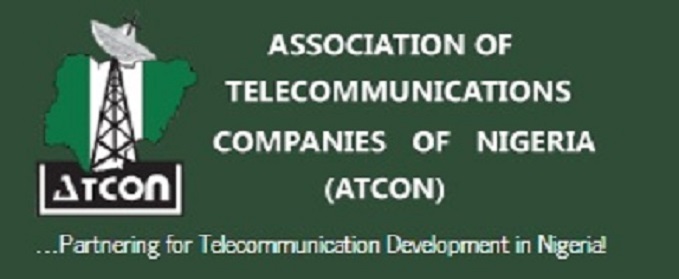Editorial
Sad! Govt Playing Politics with ICT
No modern economy can exist without fundamental information and communications technology (ICT) infrastructure because these are the tool for national and economic development.
In recognition of this truism, some governments around the world are transforming themselves into e-governments to meet the challenges of modern day.
Example is India, where the government deliberately orchestrated chains of events that culminated in making that country one of the pillars of ICT in the world.
Also, through government’s support and political will, Sri Lanka is on the path to becoming regional knowledge hub.
Malaysia also sees ICT as a powerful enabler of development in many sectors and government of the country has begun to harvest and encourage home grown ICT initiatives.
These governments recognize that embracing ICT will result in improved transparency, speedy information dissemination, higher administrative efficiency and improved public service sectors including: transportation, education, health, water, peace and security.
Conventional wisdom supported by imperial economic studies dictates that market forces alone are incapable of accelerating the development of ICT and indeed the economy.
Government must be the unseen hand that weaves the magic wand.
Responsible government is like a catalyst that speed up reaction without seen to be taking part in the reaction.
The proof lies in the fact the gross domestic product (GDP) of Singapore with a population of just over 3 million is over $40,000.
This is made possible by the massive political will of the government of that country.
In Nigeria, the case is different with a GDP of $2000 and seemingly unconcerned leaders.
Nigeria is currently living precariously with over dependence on her depleting oil and gas resources.
The huge disconnect between Nigerian government and ICT is puzzling.
Either by sheer ignorance or refusal to do the right thing at the right time; successive governments in Nigeria have continued to chase shadows.
To show their disregard for the sector, it is on record that no past president of Nigeria has presided over a major ICT event in the country.
Apart from 2002 when Atiku Abubakar, then vice president declared open e-Nigeria, no other high ranking government official in Nigeria has made his or her presence felt in any major ICT event.
Unlike the neighbouring Ghana where even the President sometimes sit through and make meaningful interventions in ICT fora, Nigerian government officials are far removed from ICT events.
Sometimes it is simply because they do not know and are not bothered to learn.
Elsewhere in Uganda, the government of that country has purposely built its development around ICT and it will not be surprising if Nigeria will start importing software and other ICT products from that country soon.
What Uganda has done is not rocket science; they have simply underpinned the regeneration of its economy with strong political will.
Political will is not something Nigerian leaders would have to go extra mile to provide.
It is not also intangible; it takes an individual, generally situated somewhere within the state apparatus (best if the person is at a very high level) to stir ICT revolution.
ICT is the tool used by the leaders of India, Bangladesh, Singapore, Ghana, Uganda and Malaysia to transform their countries.
Nigeria with its wealth of human capital and natural resources has even better potentials but the attention of the ruling class is elsewhere.
They are inclined to putting square peg in a round hole. Appointments to certain sensitive offices suggest that the government is not serious about using ICT as a platform for development.
There are many compelling reasons why government must embrace ICT for development but importantly because it is the only sector that has shown signs of life despite the general meltdown of the economy.
Having tried every known economic trick to steady the economy without any success; ICT remains the only key to redirecting the economy.
The only way forward is for the ruling class to begin to listen actively and show strong commitment to ICT related issues.
Importantly, the President must assume the role of chief technology officer of the country or appoint one he must listen to.
Agreed that some countries have made some successes using ICT as springboards; Nigeria must not copy and paste their models.
She must grow and deliberately too an indigenous architecture if it must survive in this knowledge era.
In this indigenous architecture, Nigeria can incorporate a special purpose ICT vehicle complete with ICT parks as well as research and development parks.
Nigeria can also emulate India that gave blanket exemption from tax to ICT, its largest growing sector.
Also, there is need for ICT practitioners in the country to build a strong and united front to press home their demand for incentives that spur development.
Editorial
NDPC Boss Nominated for Global Privacy Assembly’s Giovanni Buttarelli Award 2024

Dr Vincent Olatunji, National Commissioner and Chief Executive Officer of Nigeria Data Protection Commission (NDPC), has been nominated for the Giovanni Buttarelli Award 2024. The award through the Global Privacy Assembly recognises an individual’s outstanding leadership and exceptional efforts in fostering international collaboration.

Dr Vincent Olatunji
This nomination highlights Dr Vincent’s commitment to driving innovation, expanding global partnerships, and promoting a collaborative approach within the data privacy and protection ecosystem.
Under the visionary leadership of Dr Vincent, the Data Privacy ecosystem in Nigeria has witnessed a remarkable growth through key milestones such as deepening the knowledge of data protection and privacy in all public and private institutions, judicial recognition of adequacy principle in cross-border data transfer, playing key roles in regional and global data privacy ecosystem, commencement of bilateral cooperation with other jurisdictions, licensing of data protection compliance organisations, commencement of national data protection certification process, among others.
Dr Vincent’s strategic and innovative initiatives has been instrumental in forging strong international partnerships, driving sustainable growth, fostering a culture of collaboration which has not only propelled the NDPC to new heights but also set a benchmark for international cooperation and industry standards.
The Giovanni Buttarelli Award celebrates leaders who have demonstrated exceptional leadership and/or promoted collaboration at a regional or international level in the field of data privacy and protection.
Nominees are evaluated based on their contributions to projects that has led to the development of innovative concepts or practices, which have significantly impacted the thinking in the international data protection and privacy community, partnerships, and initiatives that enhance global cooperation and development.
In his response to his nomination, Dr Vincent Olatunji expressed his gratitude and emphasised on the importance of collective effort in achieving global progress. “I am deeply honored to be nominated for the Giovanni Buttarelli Award 2024” said Dr Vincent.
“This recognition is a testament to the hard work and dedication of our entire team at NDPC. It underscores the power of collaboration and the remarkable outcomes we can achieve when we work together across borders.
“I am excited to continue our journey, driving innovation and fostering partnerships that make a positive impact globally,” he said.
Editorial
Telcos Ask NCC to Allow Them Hike Tariff

Telecoms operators including MTN, Airtel and Globacom have pushed for cost-reflective tariff in view of extant economic realities.

This was contained in a statement jointly released by the Association of Licensed Telecom Operators of Nigeria (ALTON) and the Association of Telecommunication Companies of Nigeria (ATCON) on Thursday.
The statement was co-signed by Gbenga Adebayo; chairman, ALTON and Tony Emoekpere, president, ATCON.
The telcos called upon the government to take decisive action in addressing the numerous challenges confronting the telecommunications industry.
The telcos said telecommunications infrastructure development requires substantial investments in network expansion, maintenance, and technology upgrades.
“Despite the adverse economic headwinds, the telecommunications industry remains the only industry yet to review its general service pricing framework upward in the last (11) years, primarily due to regulatory constraints.
“For a fully liberalized and deregulated sector, the current price control mechanism, which is not aligned with economic realities, threatens the industry’s sustainability and can erode investors’ confidence.
“ATCON and ALTON call upon the government to facilitate a constructive dialogue with industry stakeholders to address pricing challenges and establish a framework that balances consumers’ affordability with operators’ financial viability,” the statement partly read.
Regarding the Nigerian Communications Commission (NCC), the telcos also said regulatory neutrality and independence are crucial to ensuring a thriving telecommunications sector.
“Statutory provisions lend credence to this notion, as a lack of an impartial regulator will lead to a failure to maintain public confidence in the objectivity and independence of its decisions,” the statement added.
Editorial
FG Reiterates Commitment to Achieving 17 SDGs

The federal government has reiterated its commitment to achieving all the 17 Sustainable Development Goals (SDGs) to promote economic growth and eliminate poverty in Nigeria.

The Minister of Special Duties and Intergovernmental Affairs, Senator George Akume, gave the assurance at a news conference on Tuesday, in Abuja ahead of the “Inaugural Partnership Economy Summit”, scheduled for September 14 and 15.
According to Akume, the primary purpose of the summit is to diversify the economy, promote rural growth, as well as generate sustainable jobs for the youths.
Achieving this, the minister emphasised on partnership with other stakeholders as it was the responsibility of his ministry to achieve the aim of its mission and the creation.
“The framework for the upcoming summit, guided by the principles of Public Social Private Partnership (PSPP) is being designed to develop, promote a multi-Iayered collaborative socio-economic platform for the government, the business sector as well as the civil society.
“In order to achieve this, President Muhammadu Buhari established the ministry with the mandate to develop and implement policies, programmes and projects for the effective and efficient delivery of the gains of Economic Growth and Recovery Plan,” Akume said.
He said the ministry was also charged with the mandate of collaborating with the private sector to create employment for a large number of Nigerian youths, adding that it is also meant to implement a strategy towards the realisation of the president’s June 12 promise to take 100 million Nigerians out of poverty in 10 years.
“Nigeria is among the countries in the UN that signed a pact to implement the SDGs by 2030, in the words of Ban Ki-Moon, former Secretary-General of UN in 2016.
“Nigeria is not left out in its plan towards achieving the SDGs, and how far has Nigeria gone to achieving the 806 goals is part of the questions that the upcoming summit seeks to address,” Akume explained.
He stated that to tackle the issue of poverty and unemployment, the ministry is in partnership with a number of stakeholders, including the Ministry of Industry, Trade and Investment; and Small and Medium Enterprises Development Agency of Nigeria.
Others are Raw Materials Research and Development Council, National Orientation Agency, Association of Local Government of Nigeria and SDGs Nigeria as well as MYK Psymmons Solutions Limited to come up with achievable solutions to all the challenges.

 E-Financial2 days ago
E-Financial2 days agoHere Are Nigerian Banks That Have Secured Their Licences

 Telecom2 days ago
Telecom2 days agoMTN CEO Toriola Hails Nigeria’s Telecom Transformation at MIPAD

 E-Financial2 days ago
E-Financial2 days agoZenith Bank Top Nigerian Bank Pick Ahead of GTCO, AccessCorp

 News2 days ago
News2 days agoICPC Charges Ozekhome with Forgery, Corruption Over London Property

 E-Financial2 days ago
E-Financial2 days agoNigeria Processed $92.1Bn Crypto Transactions in 12 Months — PwC

 E-Financial2 days ago
E-Financial2 days agoHow Crypto Criminals Stole $700m from People – often Using Age-Old Tricks

 Telecom2 days ago
Telecom2 days agoLebara Launches Agent Registration Portal

 E-Business2 days ago
E-Business2 days agoElon Musk Seeks $134Bn from OpenAI, Microsoft for ‘Wrongful Gains’














